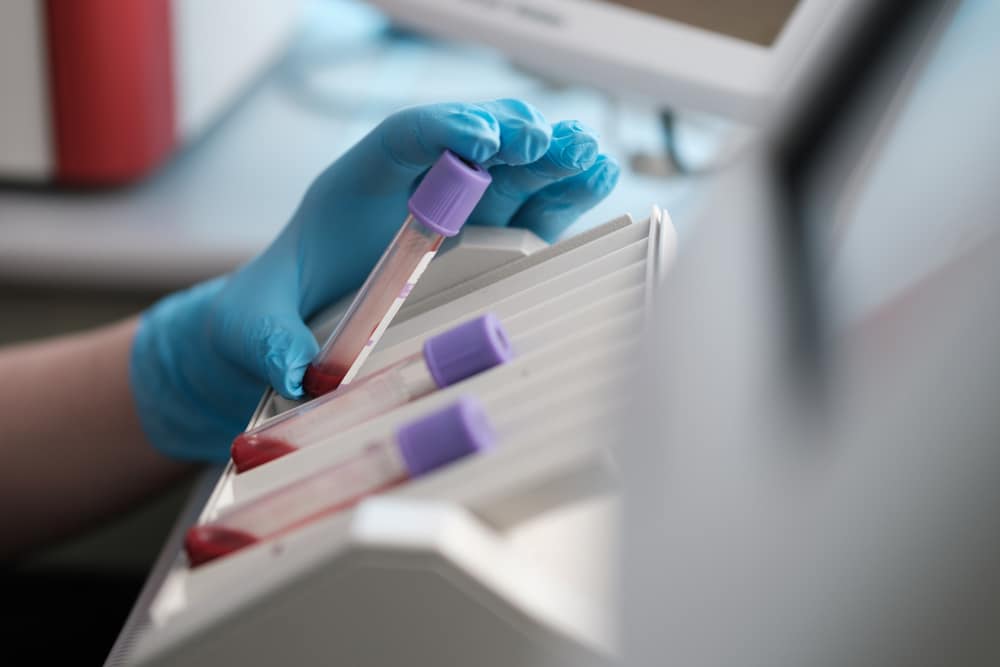As pet owners, we share our lives with these remarkable beings who bring joy, laughter, and unconditional love into our homes. Our dogs and cats are not mere animals; they are cherished members of our families, offering unparalleled companionship. Understanding the intricacies of their health is crucial, and one invaluable tool in this endeavor is comprehensive bloodwork.
Embarking on the journey of pet bloodwork is akin to opening a window into the well-being of our pet. Beyond the playful purrs and tail wags, their bodies tell a silent tale through the language of blood – a narrative that reveals the secrets to their overall health. This blog aims to demystify the world of pet bloodwork, exploring its importance, benefits, costs, and everything in between.
Benefits of Dog and Cat Bloodwork
Pet bloodwork goes beyond the surface, offering a deeper understanding of your furry companion’s health. It serves as a diagnostic powerhouse, providing insights into various aspects of their well-being. From detecting underlying diseases to monitoring the effectiveness of ongoing treatments, blood tests are the unsung heroes of preventive care. Another benefit is getting bloodwork done when they are young and healthy is to get a baseline of what is normal for your pet. This allows for an easier comparison as they age and make it easier to detect issues early on and adjust their diet, lifestyle or exercise regime as needed.
Early Detection of Health Issues
Just as we prioritize preventive healthcare for ourselves, our pets deserve the same attention. Routine bloodwork acts as a vigilant guardian, allowing veterinarians to identify potential health issues, like intestinal parasites in dogs or cats, before they manifest visibly. Early detection often translates to more effective interventions, ultimately leading to a longer and healthier life for our beloved pets.1
Tailored Treatment Plans
Each pet is unique, and so are their health needs. Bloodwork enables veterinarians to tailor treatment plans specifically to your pet’s requirements. Whether it’s adjusting medication dosages or fine-tuning dietary recommendations, a blood test offers precision to ensure that your pet receives personalized care. It can also provide insight into what to expect as your dog gets older or the best ways to care for your cat at any age.
Monitoring Chronic Conditions
For pets with chronic conditions, such as kidney or liver disease, regular bloodwork becomes a cornerstone of their healthcare regimen. Blood testing can help in monitoring the progression of the disease, assessing the impact of medications, and making informed adjustments to the treatment plan.1 It’s a proactive approach that empowers pet owners to actively participate in their companion’s well-being.
Comparative Analysis of Vet Bloodwork Costs
Routine blood work, which includes a complete blood count and standard blood chemistry analysis, can cost on average around $150 to $250 for dogs. For a younger pups, Papaya would likely recommend a smaller panel, and as they age we add more tests for aging pets, which would increase the overall price for older dogs. For cats, you typically see an additional cost of around $100 for FIV tests which are specific to feline leukemia.
Bloodwork that tests for additional analyses, including kidney health and parasites, however may have higher overall costs due to the expertise, the tests administered and specialized equipment involved.
It’s essential for pet owners to strike a balance between cost considerations and the quality of care provided. Seeking recommendations, reading reviews, and directly inquiring about fees during the initial consultation can help make informed decisions.
Managing Your Pet’s Bloodwork Costs
While the importance of pet bloodwork is undeniable, managing the associated costs is a concern for many pet owners. Here are practical tips to help navigate the financial aspects of vet bloodwork.
Explore pet insurance options that cover diagnostic tests, including bloodwork. Having insurance can significantly alleviate the financial burden of unexpected veterinary expenses.
Investing in routine preventative care, including vaccinations, flea and tick prevention, and nose-to-tail exams, can contribute to early detection and reduce the need for extensive diagnostic tests.
Incorporate pet healthcare expenses into your budget. Setting aside a specific amount each month for veterinary care can help manage costs more effectively.
Understanding the Vet Bloodwork Process
Step-by-Step Guide for Pet Owners
For many pet owners, the idea of subjecting their pets to blood tests may evoke concerns. However, understanding the vet bloodwork process can alleviate anxieties and emphasize its importance.
Consultation and Assessment: The process typically begins with a thorough consultation. Veterinarians discuss the pet’s medical history, current symptoms, and any concerns the owner might have.
Blood Sample Collection: The actual blood collection is a swift process. A small amount of blood is drawn from a vein, often or dogs there are 3 routes a vet might take: the neck, front leg or back leg. Cat blood samples are taken from the neck or back leg. The team at Papaya Vet will decide which route based on pet behavior, how easily accessible the veins are. Most pets tolerate this step remarkably well.
Laboratory Analysis: The collected blood sample is sent to a laboratory for analysis or may be done in-house at the veterinary clinic. Standard blood test panels can include a complete blood count (CBC), blood chemistry profile, and specialized tests like heartworm and diabetes screening, may be conducted.
Results and Consultation: Once the results are available, the veterinarian discusses the findings with the owner. This consultation is an opportunity to understand the pet’s health status, discuss any concerns, and plan any necessary interventions.
Frequently Asked Questions (FAQs)
How often should I have bloodwork done for my pet?
The frequency of pet bloodwork depends on factors such as age, breed, and existing health conditions. Generally, annual bloodwork is recommended for healthy pets, while those with chronic conditions may require more frequent monitoring.
What does a complete blood count (CBC) reveal about my pet’s health?
A CBC provides information about the quantity and quality of red and white blood cells. It helps in detecting conditions such as anemia, infection, and inflammation.2
Is pet insurance worth it for covering bloodwork costs?
Pet insurance that covers diagnostic tests, including bloodwork, can be beneficial. It provides financial assistance during unexpected health issues and ensures that your pet receives timely and necessary care.
Are there alternative diagnostic tests to bloodwork?
While bloodwork is the moist comprehensive diagnostic tool available, but there are other tests, such as imaging studies (X-rays, ultrasounds) and urine analysis that might be needed for full diagnosis. The choice depends on the specific health concerns and the veterinarian’s recommendation.
Can I request a copy of my pet’s bloodwork results?
Absolutely. It’s your right as a pet owner to request and receive a copy of your pet’s bloodwork results. Reviewing these results with your veterinarian enhances your understanding of your pet’s health status.
Advocating for Our Furry Companions’ Health
In the tapestry of our lives, pets weave threads of joy, love, and companionship. Recognizing them not just as animals but as integral family members prompts us to prioritize their health with the same diligence we apply to our own. Comprehensive bloodwork emerges as a vital tool in this commitment, offering a window into their well-being that goes beyond the surface.
As we navigate the terrain of pet bloodwork, let’s embrace the journey with open hearts and inquisitive minds. From the initial consultation to understanding vet bloodwork costs and choosing the right clinic, every step is a testament to our dedication to the health and happiness of our pets. Let us stand as advocates for their well-being, ensuring that they live their lives to the fullest, surrounded by the warmth and care they so willingly bestow upon us.
At Papaya Veterinary Care, we offer comprehensive vet care including everything from routine and diagnostic blood tests to microchipping. Our licensed professionals and state-of-the-art facilities reflect our commitment to providing exemplary care for your beloved pets. Find a Papaya Vet near you and trust us to be partners in your furry companion’s health journey.
Sources:
- Long Island University Headlines. Did you know? Regular blood work screenings for your pets is important. https://headlines.liu.edu/?p=3553.
- PetMD. Blood work: What it means and why your pet needs it (Part 1: The CBC). https://www.petmd.com/blogs/fullyvetted/2009/may/blood-work-what-it-means-and-why-your-pet-needs-it-part-1-cbc-6788.


